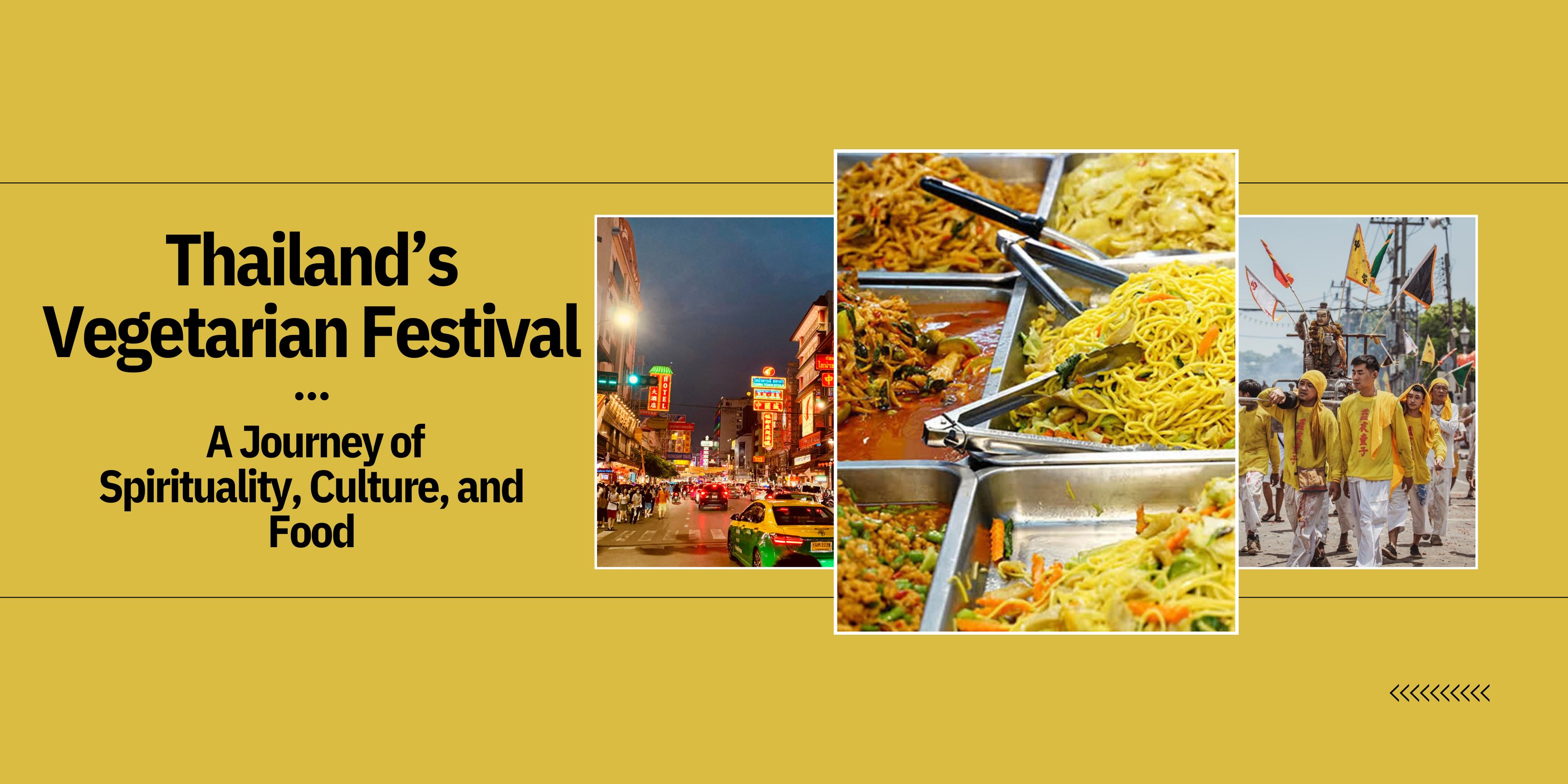Thailand’s Vegetarian Festival: A Journey of Spirituality, Culture, and Food
My Experience at Thailand’s Vibrant Vegetarian Festival
I had heard so much about Thailand’s annual Vegetarian Festival, but nothing quite prepared me for the electrifying energy that pulsed through the streets. Held every year during the ninth lunar month of the Chinese calendar, this celebration blends spirituality, culture, and food into an unforgettable experience. In 2024, the festival will take place from September 28 to October 7, and if you’ve ever considered visiting, let me share what it’s truly like.
Origins and Meaning
Before I attended, I learned that the Vegetarian Festival, or the Nine Emperor Gods Festival, is rooted in Taoist traditions. It honors the Nine Emperor Gods, believed to bring health and good fortune to those who observe a strict vegetarian diet during the festival. The historical origins of this festival date back centuries when a Chinese opera troupe fell ill and was healed after adopting a vegetarian diet to purify themselves. This ancient tradition is now celebrated widely across Thailand, with the most intense festivities happening in Phuket.
Phuket: Intensity at Its Peak
Phuket’s Vegetarian Festival is not for the faint-hearted. I arrived in the middle of the celebrations, and the first thing that struck me was the sheer intensity of it all. Thousands of devotees, dressed entirely in white, thronged the streets, and the air was thick with the sounds of firecrackers, drums, and chanting.
The street processions were like nothing I had ever seen. Participants, known as “Ma Song,” walked in trances, performing extreme feats like piercing their cheeks with sharp objects, some carrying poles and hooks through their faces and bodies. I was awestruck. While this ritual may seem shocking, it’s done as an act of purification, believed to absorb the negative energy from the community. As a spectator, I felt a mix of fascination and respect for the spiritual devotion that these people displayed.
In between the processions, the streets of Phuket were lined with endless vegetarian food stalls. I indulged in mock meats, tofu dishes, and fragrant vegetable curries that were bursting with flavor. Phuket’s Chinatown, in particular, was a food lover’s paradise during the festival. Even for someone like me, who wasn’t strictly vegetarian, the variety and taste of the dishes were mind-blowing.
The temples in Phuket, especially the Jui Tui Shrine, were another highlight. I joined the locals in offering incense and prayers, experiencing the spiritual undercurrent that flows through the heart of the festival. The atmosphere was a mix of reverence and celebration, making the festival feel both sacred and festive.
Bangkok: A Culinary Wonderland
After Phuket, I headed to Bangkok, where the Vegetarian Festival takes on a slightly different vibe. Here, the focus was much more on food—and wow, what a treat it was! In areas like Yaowarat (Chinatown) and Silom Road, the streets transformed into sprawling food markets. It felt like a giant vegetarian street party!
Bangkok’s version of the festival is more accessible for visitors. There are colorful parades with traditional costumes and performances, but the heart of the city’s celebrations is really the food. I wandered for hours, sampling local delicacies like spicy tofu stir-fries, fragrant rice dishes, and mock meats that were so perfectly seasoned, I almost forgot they were vegetarian.
Temples like Wat Mangkon Kamalawat were buzzing with activity. Locals came to offer prayers, light incense, and participate in traditional rituals. I joined a ceremony where food offerings were made to the gods, and even though I didn’t fully understand all the customs, I could feel the sense of community and devotion that bound everyone together.
Chiang Mai: A More Laid-Back Celebration
My final stop was Chiang Mai, where the Vegetarian Festival is celebrated with a more laid-back, community-driven vibe. Compared to the intensity of Phuket, Chiang Mai’s festival felt more intimate. The city’s famous Warorot Market became a vegetarian haven, with vendors offering unique, local vegetarian dishes.
What I loved about Chiang Mai’s festival was the fusion of tradition and creativity. Vendors sold dishes like vegetarian khao soi (a famous Northern Thai noodle soup), mushroom skewers, and even vegetarian versions of Chiang Mai sausage. It was a feast for the senses, and I spent hours walking through the market, tasting everything, I could.
The local temples, like Wat Chedi Luang, were quieter than those in Bangkok or Phuket, but there was something soothing about their calm atmosphere. I joined locals in offering prayers and felt a strong sense of peace wash over me. The festival here was less intense, but just as meaningful, allowing me to connect more deeply with the spiritual side of the celebrations.
A Feast for the Senses and Soul
What stood out to me the most during my journey through Thailand’s Vegetarian Festival was how it was a celebration of both body and spirit. The food was incredible everywhere I went—fresh, vibrant, and diverse—but the festival itself went so much deeper. It was about community, purification, and devotion.
Whether you’re fascinated by the rituals in Phuket, looking for a food paradise in Bangkok, or seeking a more relaxed and spiritual experience in Chiang Mai, the Vegetarian Festival offers something unique in every region. For me, it was more than just a festival—it was a profound cultural experience that connected me to a rich history and tradition. I can’t wait to return and dive deeper into this amazing celebration. If you’re planning a visit in 2024, make sure you bring an open mind and an empty stomach—you’re going to need both!

